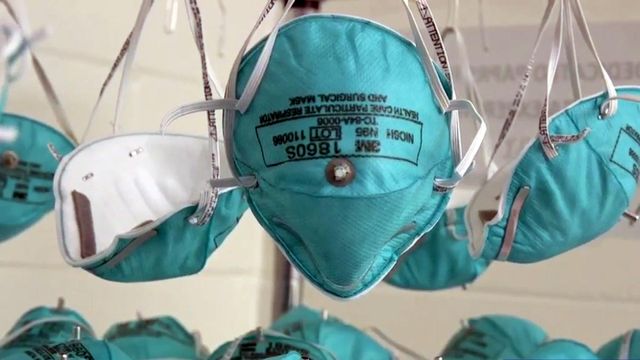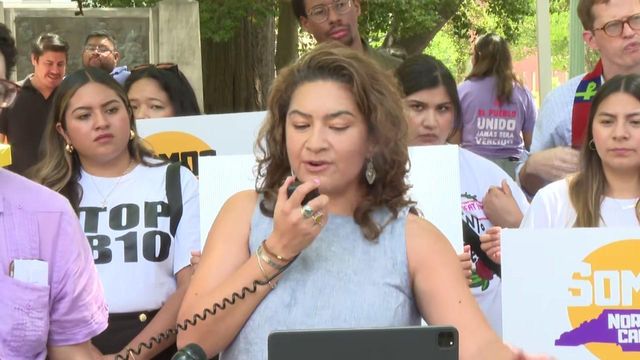Duke Health finds way to sterilize, reuse masks needed during pandemic
Duke University Health System researchers have devised a way to decontaminate the N95 masks that hospitals nationwide have been clamoring for during the coronavirus pandemic.
The process will allow the masks to be safely reused, somewhat alleviating the mask shortage.
Specialized equipment mists hundreds of masks at a time with hydrogen peroxide for four hours, and the peroxide permeates the layers of the mask to kill viruses and germs without degrading the mask material, officials said.
"Imagine your vaporizer at home that aerosolizes water into the air to make it humid. This is the same type of thing but a bigger machine," Duke Health Vice President Dr. Monte Brown said. "It’s a new application of an existing technology that we’ve been using in one of our facilities for 10 years on the research side."
The same process is already used at Duke to decontaminate medical equipment.
"The performance is exactly the same as if it were a new mask," said Wayne Thomann, retired director of Duke's Occupational and Environmental Safety Office.
"The big thing is that it’s going to give us the capacity to reuse materials that would normally be discarded, so it lessens the number of new product that we need," Thomann said. "I think it’s important to recognize that this is perhaps not the preferred method."
Duke University Hospital is already set up to start treating N95 masks, and officials said it will soon be added at Duke Regional Hospital and Duke Raleigh Hospital.
"This is just one of the things that Duke is doing to try to conserve and help each other, so we are sharing this as broadly as we can," Brown said. "There are people 3D printing different parts for ventilators all over the world, so I think everybody is coming together to really help each other and not worrying about who invented or whatever else."
"I think it sounds like a great innovation, especially if they’re willing to share it with people in other health fields because it’s not just a problem in Durham. It’s obviously a big problem elsewhere," said Amanda Brumwell, a Durham resident who works in global public health.
"Anything to alleviate the massive shortage [of masks] is a good thing to do," agreed Durham resident Rushir Patel.










